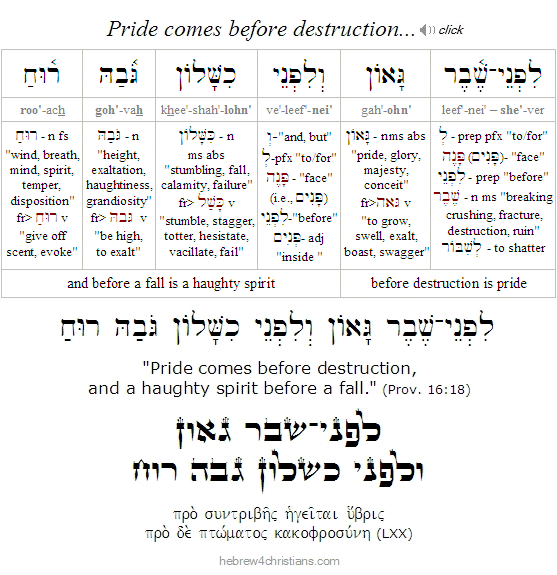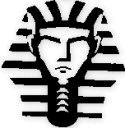|
Though he sometimes appeared to change his mind in light of the revelation of God, Pharaoh nevertheless reverted to his older thinking after the crisis seemed to pass. Therefore the Torah states that after each of the first five plagues, Pharaoh hardened (lit., "strengthened") his heart. It was only after five successive opportunities to face reality, to give up his claim to be god, to turn to the LORD in humility, however, that God ratified Pharaoh's will by "helping him" become the person he decided to be. Therefore after the sixth plague we read, ve'chazek Adonai et-lev paroh: וַיְחַזֵּק יְהוָה אֶת־לֵב פַּרְעֹה - "And the LORD strengthened Pharaoh's heart" (Exod. 9:12).
"The Torah of Pharaoh" (התורה של פרעה) teaches us that God will never force a sinner to turn away from their sin, but if they willfully continue to sin, they may eventually become unable to turn, trapped in a very difficult place.... The Shemot Rabbah states: "The Holy One, blessed be He, gives someone a chance to repent, and not only one opportunity but several chances: once, twice, three times. But then, if the person still has not repented, God locks the person's heart altogether, cutting off the possibility of repentance in the future." There is a very real risk that those who choose to be at war with God, who flatly refuse repeated appeals to turn to the LORD, will become progressively "strengthened" in their resolution to defy reality... And that, friends, is the "Torah" that Pharaoh teaches....
There are midrashim that Pharaoh eventually did repent, after seeing the destruction of his armies in the sea, so there is still hope for the most hardened of heart, but alas....
Hebrew Lesson
Psalm 95:8 reading (click):
 |
The tragic story of Pharaoh reminds us how pride can blind the heart. As Abraham Heschel said, "In a controversy, the instant we feel anger, we have already ceased striving for truth and have begun striving for ourselves." The truth needs no defense. If we find ourselves getting defensive or hostile, we need to take a step back and ask ourselves what we really believe... If we seek to use truth as a weapon, or as a means to rationalize our self-will, then we are not "in the truth," even if our facts in the matter may be correct. We must be careful not to find ourselves using the truth for our own agenda. Yeshua's words haunt the heart: "Without me you can do nothing" (John 15:5).
Kierkegaard notes: "The proud person always wants to do the right thing, the great thing. But because he wants to do it in his own strength, he is fighting not with man, but with God." Indeed, how many people seek visions, dreams, and private prophecies while they forsake the Spirit as it broods over the hearts of those around him or her? How many seek to "know God" as a matter of the pride of heart?
The Koretzer Rebbe was asked for instruction how to avoid sin. He replied, "Were you able to avoid offences, I fear you would fall into a still greater sin - that of pride" (Hasidic). The antidote to pride is the "fall of the soul," that is, those besetting sins and painful failures that (hopefully) bring us back to reality - namely, to the place of brokenness and our need for divine intervention... When we get "sick of our sickness" we enter into holy despair, and then the cry of the heart for lasting deliverance can be truly offered.
Hebrew Lesson
Proverbs 16:18 reading (click for audio):
 |
Note that the warning of Pharaoh's tragedy is not just for those who defy faith in the LORD God of Israel, for the New Testament warns God's redeemed children not to harden their hearts through unbelief as well:
"For who, having heard, rebelled? Indeed, was it not all who came out of Egypt, led by Moses? And with whom was he provoked for forty years? Was it not with those who sinned, whose bodies fell in the desert? and to whom did he swear that they would not enter his rest, but to those who were disobedient? So we see that they were unable to enter because of unbelief. Therefore, while the promise of entering his rest still stands, let us fear lest any of you should seem to have failed to reach it. For good news came to us just as to them, but the message they heard did not benefit them, because they were not united by faith with those who listened." (Heb. 3:16-4:2)
Amen. Faith is the essence of obedience. "And this is one of the most crucial definitions for the whole of Christianity; that the opposite of sin is not virtue but faith." (Kierkegaard)
|




